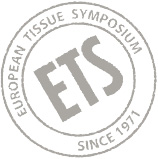Blog by public health expert Professor Marc Van Ranst, Professor of Virology at the Katholieke Universiteit Leuven and the Rega Institute for Medical Research, Belgium
People are always surprised to hear that more illnesses occur during the summer months. Winter is traditionally associated with coughs and colds and feeling under the weather – so let me explain.
Even though everything that we do outdoors makes us less vulnerable to infectious diseases, the summer months are a cause for concern for virologists like me because this is when people congregate together in large groups.
Think about it. Most large sporting events take place during the summer months: This year’s European championships football has drawn huge crowds to stadia all over Germany, and next month the Olympics will begin in Paris, bringing large numbers of people together once again.
And it’s not only sport. Most music festivals take place in summer. People gather over the course of several days and sleep, eat and party in close proximity. This creates an ideal breeding-ground for gastro-intestinal infections, enteroviruses and even for aseptic meningitis which can cause headaches and sensitivity to light. We experience outbreaks of these infections every year. Plus, we are still seeing waves of Covid infection in summer too. Not as virulent as at the height of the pandemic, but still enough to lay people low.
Good hand hygiene and good ventilation can go a long way towards minimising the spread of infection whether it’s summer or winter, but of course it’s not always easy to wash and dry hands properly at outdoor events.
Summer is also a time when people travel. Public health experts have a pecking order for the risks involved in travelling over the holiday period: by far the greatest risk is in your own car! If you are not diligent about opening windows and ensuring the air filtering system is working well then respiratory infections can be passed easily from one person to another.
Next up is old buses which do not carry the effective ventilation systems of modern coaches and buses and often have only one window in the roof.
Trains are much safer from a health perspective and are generally well ventilated unless they are overfull, with people standing in the corridors. Trains that stop often will naturally allow fresh air to flow in every time they open the doors.
Airlines take ventilation quite seriously – particularly post-Covid. The quality carriers circulate new air at regular intervals – but watch-out for budget airlines that may look to save money by changing cabin air less frequently. You might just emerge from the flight with quite a headache.
Where you sit in the plane also makes a difference. While it probably doesn’t matter much for us holiday travellers, when I am working with top sports professionals such as cyclists and footballers – where every element of their diet, training and environment can be the difference between success and failure – I always advise sitting by the window where there is more air and less exposure to members of the public passing up and down the aisles. I would probably advise to sit Grandma by the window if you are travelling by plane with family. While she probably won’t win the Tour de France, she will be likely to arrive in better shape.
And its not just travelling that can expose us to disease. Arriving brings a whole new set of challenges. Most of us have experienced a bout of ‘holiday tummy’ after eating local dishes or sampling street food which may not have been prepared in the most hygienic conditions. When it comes to hygienic food preparation the same rules apply whether you are feeding the local scout group or running a three-star restaurant: wash your hands constantly and dry them with single use towels, wipe down surfaces and ensure they are sterile and always ensure that food is well refrigerated.
Whatever you are planning this summer, my advice is to always have a good supply of water, tissues and hand gel with you and to observe the basic rules of hygiene: regular hand washing and drying, good ventilation and taking precautions in crowded places. But most importantly, remember to enjoy yourself! Winter will be around again before we know it.
Should you like to go more into detail on researches done over 15+ years, take a look on the website: ETS – Discovery Roadmap (europeantissue.com).
About ETS
ETS is the European Tissue Paper Industry Association. The members of ETS represent the majority of tissue paper producers throughout Europe and around 90% of the total European tissue production. ETS was founded in 1971 and is based in Brussels. For more information: www.europeantissue.com
Editorial contacts:
duomedia
Dorien Cooreman | tel. +32 2 560 21 50 | dorien.c@duomedia.com
ETS
Carlos Reinoso | tel. + 34 61 92 000 944 | carlos.reinoso@europeantissue.com
Follow ETS on:
Twitter.com/ETS | Facebook.com/ETS | Linkedin.com/ETS | Youtube.com/ETS | Instagram.com/ETS












